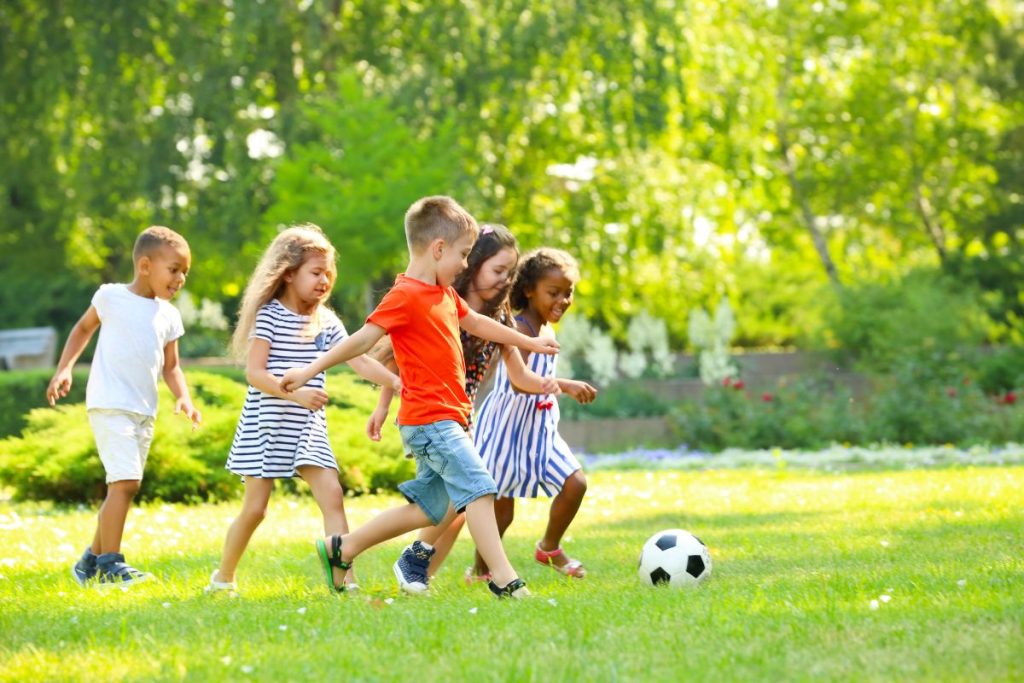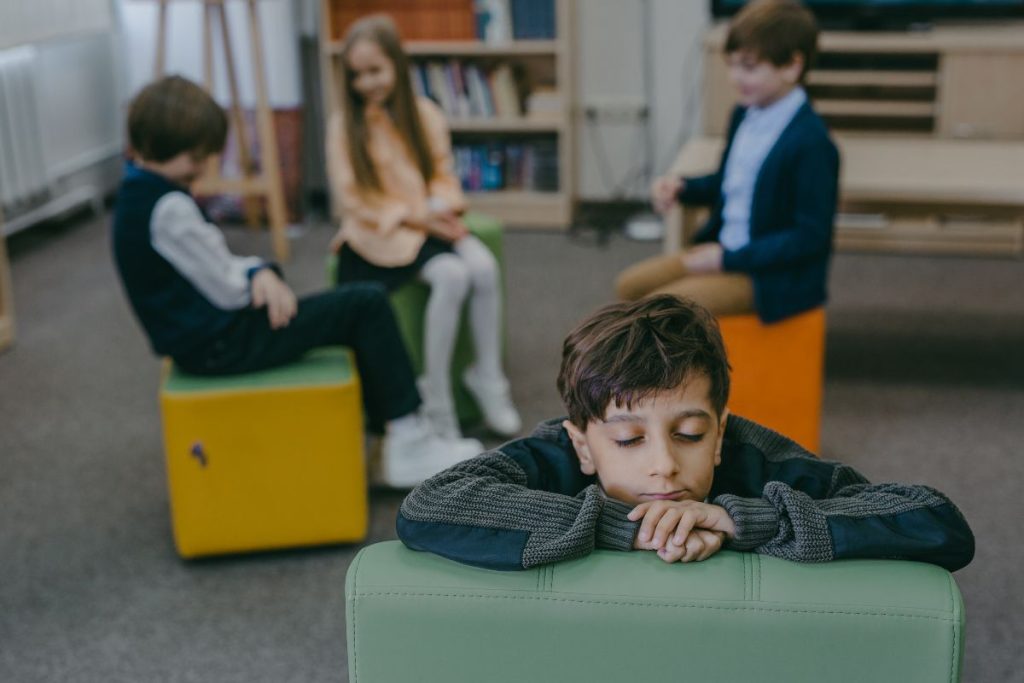Making friends is an essential part of a child’s life, and for many children, kindergarten is the first big opportunity to form these crucial relationships. Developing social skills in the early years is not only vital for immediate interaction with peers, but it also lays the foundation for future communication abilities. However, it’s common for kindergarteners to experience challenges when trying to make friends. They’re in a new environment, exploring new dynamics, and learning how to communicate their thoughts and feelings effectively. As a parent, it can be heartbreaking to see your child struggle socially, and you may be wondering how you can help your child to make friends. This guide will provide you with practical tips and strategies to help your kindergartener make friends.
Understanding Your Child’s Social Needs

Understanding Your Child’s Social Needs
Every child is unique, and their social needs can significantly vary. Some children may be outgoing and extroverted, eager to jump into social situations. On the other hand, some children may be introverted, preferring one-on-one interactions or solitary activities. This is perfectly okay. The first step to helping your child make friends is to understand their social needs and comfort zone. For example, if your child is shy and reserved, encouraging them to make many friends might overwhelm them. Instead, help them focus on making one or two close friends.
Assessing your child’s social comfort zone
Assessing your child’s social comfort zone is also crucial. Pay attention to how they behave around their peers. Are they comfortable in large groups, or do they prefer smaller gatherings? Observing these behaviors can provide insights into the kind of social interactions your child is most comfortable with. For instance, if your child enjoys small groups, arranging play dates with one or two other children might be a good start.
Remember, the goal is to help your child make meaningful friendships, not just increase the number of their friends. It’s about quality, not quantity. Moreover, their social needs might change over time, and that’s okay too. It’s all part of growing up.
Fostering Friendships at Home
Role-playing Social Scenarios
Role-playing is a powerful tool to help your child navigate social interactions. By recreating scenarios that your child may encounter in kindergarten, you can help them understand how to respond. For instance, you and your child can act out how to initiate a conversation, how to react when another child doesn’t want to share a toy, or how to ask if they can join in a game. These role-playing sessions can be both fun and instructive, easing your child’s anxiety about unfamiliar situations and equipping them with appropriate social responses.
Encouraging Sharing and Cooperation
Kindergarten is often where children learn the importance of sharing and cooperation. As a parent, you can foster these values at home. Start by establishing sharing routines during play. For example, if your child is playing with blocks, you could say, “It’s your brother’s turn to play with the blue block. Can you hand it to him?” Gradually, your child will learn to share without prompting. Moreover, engage your child in activities that require cooperation. This could be as simple as a puzzle, where everyone needs to work together to complete it.
Hosting Playdates
Playdates are an excellent way for children to build friendships in a controlled, comfortable environment. By inviting one or two of your child’s peers over for a playdate, you’re providing an opportunity for your child to interact with peers on a more personal level. During these playdates, allow the children to lead the play. This way, your child learns to negotiate, cooperate, and communicate effectively with their peers. Start with shorter playdates, and as the children become more comfortable, you can extend the duration.
Partnering with the School
Communicating With Teachers About Your Child’s Social Progress
Regular communication with your child’s teacher is crucial in understanding their social development. Teachers observe children interacting in many different contexts and can provide valuable insights into your child’s social skills. They may also suggest helpful strategies tailored to your child’s unique needs. For instance, if your child often chooses to draw alone at playtime, the teacher might suggest strategies to gradually involve them in group play.
Participating in School Events and Volunteering
Being actively involved in your child’s school life can provide opportunities for them to make friends. By attending school events such as sports games and school fairs, you can help your child build friendships outside the classroom. For example, if your child and a classmate both show an interest in the same game at the fair, this shared experience could lead to a new friendship.
Volunteering at the school is another way to foster your child’s social development. By helping out in the classroom or on field trips, you can observe your child interacting with their peers and offer gentle guidance if needed. For instance, if you’re volunteering on a field trip to the zoo and notice your child wants to play with a peer but doesn’t know how to join in, you might suggest, “Why don’t you ask them if they’d like to see the monkeys with you?”
Remember, your active involvement sends a strong message to your child that you’re invested in their social life, which can boost their confidence when making friends.
Nurturing Your Child’s Interests

Enrolling Your Child in Extracurricular Activities
Extracurricular activities can provide a wonderful platform for your child to make new friends. By participating in activities that align with their interests — be it soccer, ballet, art, or a coding club — your child will have the opportunity to meet and interact with like-minded peers. For instance, enrolling your child in a local soccer team not only allows them to enjoy the sport but also provides them with the chance to form bonds with their teammates as they work towards a common goal.
Supporting Your Child’s Hobbies and Passions
Every child has unique passions and hobbies. Encouraging these interests can give your child the confidence to express themselves, which is key when it comes to making friends. If your child is passionate about dinosaurs, for instance, help them embrace this passion. You could visit a natural history museum together, or encourage them to bring their favorite dinosaur book to school to share with their classmates. This not only allows your child to share something they love, but it also becomes a conversation starter, potentially sparking friendships with peers who share similar interests.
Understanding That Making Friends Takes Time
It’s important to remember that making friends is a process that takes time. Everyone, even adults, can feel shy or nervous when in new social situations. Reiterate to your child that it’s perfectly normal to take time when it comes to making friends. Perhaps share a personal story about a time when you felt shy and how you overcame it. By understanding that their feelings are normal, your child may feel more comfortable and confident in social situations, which can help them form friendships more naturally.
Celebrating Small Victories
Every step your child takes towards making a friend should be celebrated. Whether your child shared a toy with a classmate, invited a friend over for a playdate, or even just said a simple ‘hello’ to a classmate, remember to acknowledge these small victories. This can boost your child’s morale and encourage them to continue making efforts to build friendships.
Being There For Your Child
Finally, show your child that you are there for them, regardless of how many friends they have. Celebrate their individuality and let them know that it’s okay not to have a big group of friends. What matters most is having a few good friends that they can trust and rely on. Your support will give them the confidence they need to navigate the world of friendships in kindergarten and beyond.
Dealing with Social Challenges

Helping Your Child Cope with Rejection
Rejection is a part of life and learning to cope with it is an important life skill. Help your child understand that not everyone will always want to play with them, and that’s okay. It doesn’t mean anything is wrong with them or that they’re unlikable. For example, if a classmate doesn’t want to share a toy, reassure your child by saying, “Maybe they just really love that toy and don’t feel like sharing right now. Let’s find another toy to play with.”
Teaching Conflict Resolution Skills
Childhood is the perfect time to learn conflict resolution skills. Teach your child to express their feelings with words, rather than acting out. If your child has a disagreement with a friend, guide them through the process of talking it out. For instance, if your child is upset because their friend took their toy, help them to say, “I felt sad when you took my toy. Can we take turns playing with it?” This teaches your child effective communication skills, which are crucial in the process of making and maintaining friendships.
Being a Role Model
Children learn a lot from observing the adults around them. Show them what it means to be a good friend by modeling healthy friendships in your own life. Display kindness, empathy, and respect in your interactions with your own friends and discuss these behaviors with your child. For example, if you’re making a gift for a friend who’s unwell, involve your child in the process and explain why it’s important to care for friends when they’re not feeling well.
Building Self-Esteem
Help your child recognize their strengths and have confidence in themselves. Let them know it’s okay to be proud of their accomplishments and to voice their opinions. A child who feels good about themselves finds it easier to make friends. Celebrate their achievements, however small, such as when they manage to complete a puzzle on their own or learn a new word. This will help them to feel valued and capable, increasing their self-esteem.
Fostering Empathy
Empathy is central to positive social interactions. Teach your child to consider other’s feelings. If they see a classmate crying, encourage them to think about the reasons why that child might be upset and what they can do to help. This not only helps your child to make friends, but also fosters a sense of kindness and compassion.
Conclusion
Helping your child make friends in kindergarten is an important part of their social development. It can provide them with valuable life skills and pave the way for their future interactions. Remember, every child is unique and moves at their own pace. Providing a supportive and understanding environment, nurturing their interests, teaching them important social skills, and encouraging empathy can significantly boost their confidence. It’s also essential to reassure them that it’s fine to have just a few close friends rather than a large group. Your love, support, and guidance are the key ingredients in helping your child navigate the exciting journey of making friends in kindergarten.
